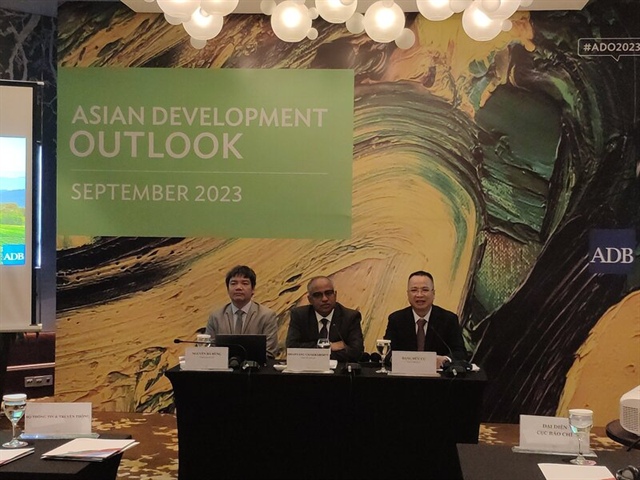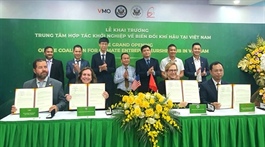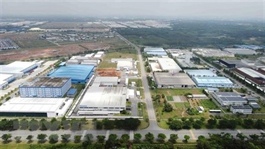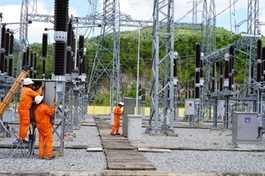Vietnam’s economy remains resilient amid weakening global demand
Vietnam’s economy remains resilient amid weakening global demand
Vietnam’s economic growth is expected to expand by 5.8% in 2023 and later rebound to 6.0% in 2024.
Vietnam’s economy remains resilient and recovery is expected to strengthen in the near term driven by strong domestic consumption, which is supported by moderate inflation, accelerating public investment, and improved trade activities.

Overview of the launch. Photo: Hai Yen/The Hanoi Times |
ADB Country Director for Vietnam Shantanu Chakraborty shared this view today [September 27] at the launch of the bank's Asian Development Outlook (ADO) report.
"A weak external environment, including from a subdued recovery in China, has hampered export-led manufacturing, resulting in a contraction of industrial production in Vietnam," added Chakraborty.
In this context, Vietnam's economic growth is predicted to slow to 5.8% in 2023 and 6.0% in 2024, compared to the April 2023 forecast of 6.5% and 6.8%, respectively.
ADB's Principal Country Economist Nguyen Ba Hung added that the main forces affecting the economy have been the global economic slowdown, monetary tightening in some advanced countries, and the disruptions caused by heightened geopolitical tensions.
High-interest rates in the US and Europe have slowed recovery and reduced demand from major trading partners. Export receipts in the first eight months of 2023 were 10.0% lower than in the same period of 2022.
The decline in demand was much more pronounced in Vietnam's key markets, with exports to the US falling by 20.6%, the European Union by 9.7%, and the Association of Southeast Asian Nations (ASEAN) by 6.8%. Shipments of mobile phones, computers, and electronic products, accounting for 30.0% of total exports, decreased by 15.0%. Meanwhile, exports of machinery and equipment, accounting for 12.0% of total exports, fell by 10.0%.
Meanwhile, Inflation forecast for 2023 has been revised to 3.8% from 4.5% and for 2024 to 4.0% from 4.2%.
"Inflationary pressure in the near term could come from the disruption of global supply chains due to the ongoing Russia-Ukraine conflict. However, this pressure could be contained by subdued gas and oil prices in the year's second half and stable domestic food prices," Hung said.
While Vietnam's industrial production is shrinking due to falling global demand, other sectors are hoped to show healthy growth, he added. The services sector would continue expanding, supported by a revival in tourism and associated services. Retail sales improved 7.6% year on year in August, and sales for the first eight months of 2023 were up 10.0% over the same period last year.
Agriculture would benefit from rising food prices and expand by 3.2% in 2023 and the following year.
On the demand side, moderate inflation will support domestic consumption and maintain growth for the rest of the year.
Hung noted that public investment will be the key driver for economic recovery and growth in 2023.
"Effective disbursement of public investment projects will directly support industries such as construction and materials and provide more employment activities," he added.
The government is committed to disbursing around $30 billion this year. In recent months, strong political commitment has resulted in significant improvement in disbursements despite ongoing regulatory constraints.
In the first eight months of 2023, almost 50.0% of the planned annual public investment disbursement was made (increased from 33.0% at the end of June 2023).
Accelerating government spending could give a welcomed stimulus to demand in the remainder of the year. Foreign investment showed signs of recovery despite the global economic slowdown, with FDI commitments by August 2023 at US$18.2 billion, an 8.2% annual increase, and disbursed FDI slightly increased by 1.3%, to $13.1 billion.
Nevertheless, Hung pointed out that slow disbursements of public investment and structural weaknesses in the real economy are the main downside internal risks to the economy.
Externally, a substantial slowdown in global growth and a weak recovery in China remain risks to the economic outlook. Persistently high-interest rates in the US and Europe and a stronger US dollar may pose further challenges to the recovery of external demand and weaken the dong exchange rate.
The economist expected coordinated policy to effectively support the economic recovery, considering relative price stability and weak demand.
In the near term, monetary policy should be accommodative and fiscal policy expansionary. Slow credit growth indicates that monetary policy easing needs to be closely coordinated with fiscal policy implementation to stimulate economic activities effectively.



























